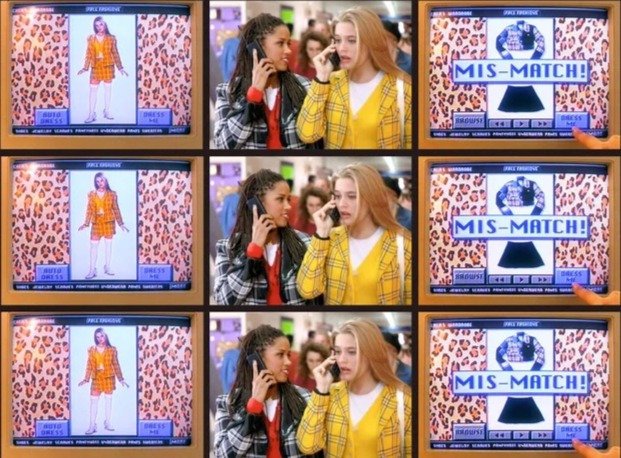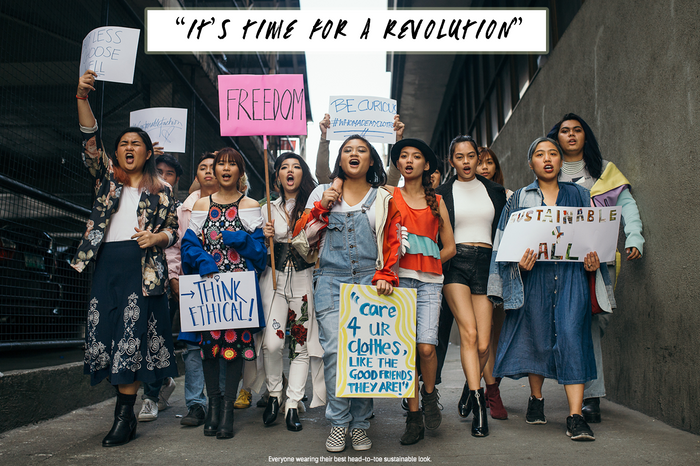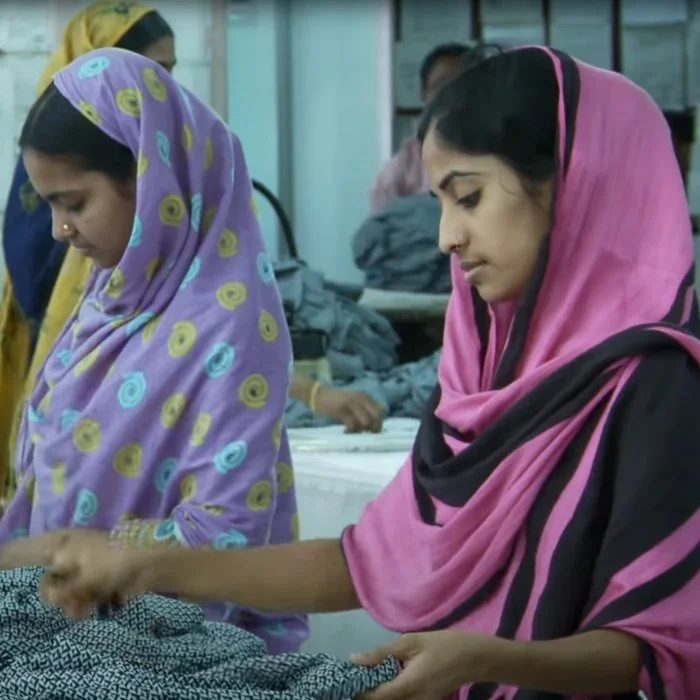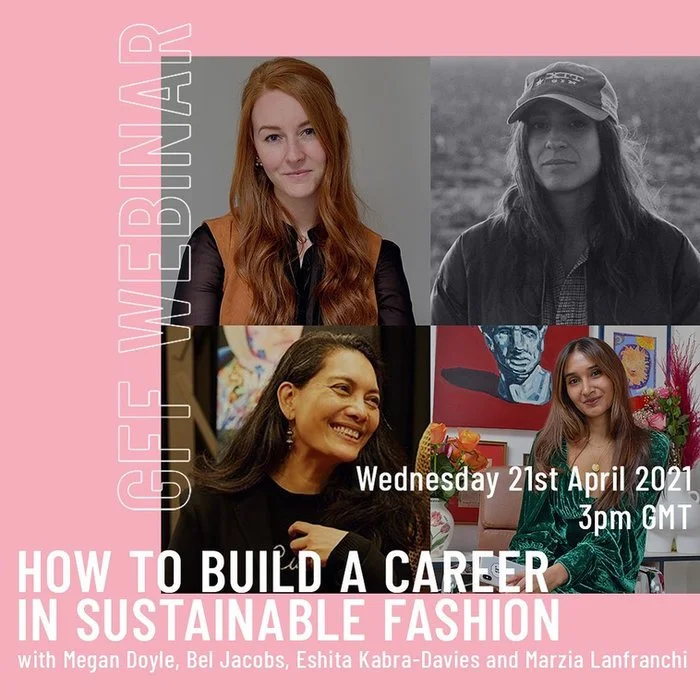The Titian Thread
The month in fashion, condensed.
Hey there,
Wow. April was intense. Between Fashion Revolution Week and Earth Month, the sheer quantity of sustainable fashion content made me feel quite conflicted. On one hand, it's important that the media is starting to promote more ethical brands – we need to have greater access to better shopping choices. But with a rise of sustainability content comes an unavoidable uptick in greenwashing – I'm looking at you, publications that include H&M's conscious line in your sustainable fashion round-ups.
This month I've been wondering, what makes someone an expert? And who gets to decide? In this space, personally, I think the more you know, the less you know. But that's the tricky thing about the mainstream sustainable fashion movement – it's still burgeoning, so anyone can claim the title of an expert (and be treated like one by the industry) despite having very little expertise, qualifications or lived experience. What we're actually doing is conflating "expert" with "influencer", a dangerous mistake to make. Case in point, H&M's newest Global Sustainability Ambassador, the actor Maisie Williams.
If you read one piece from this month's newsletter, make it The Case against the Sustainability “Influencer” by Shefalee Vasudev. She argues that self-appointed experts are actually hindering the movement. Influencers undoubtedly reach a far wider audience than say, an environmental scientist studying micro-plastic pollution caused by polyester, yet that power comes with very little responsibility or accountability. Influencers are not held to the same standards as a sustainable brand or organisation, despite playing a significant role in spreading information and impacting the consumption habits of their audience.
This isn't to say that influencers don't have a place in the movement. To create change, we need both influencers and experts, but we should recognise that their roles are quite different. Influencers create awareness, and experts – the scientists and activists – create deeper change that is largely behind the scenes. To confuse the two is harmful, especially when it's so easy to share inaccurate information far and wide.
As the movement grows, I imagine there will be infinitely more "experts" jumping on the proverbial bandwagon. It's important that we use our platforms mindfully, do the research, think critically about what brands tell us, define our standards, and when in doubt defer to the bona fide experts, or we risk further diluting the message and adding to already rampant greenwashing.
Until next time, hit the reply button to share your thoughts or feedback!
Meg X
Stories I Wrote
It’s Time To Digitise Your Wardrobe, Just Like In Clueless for Refinery29.
Digital fashion platforms are on the rise, with games that let you wear your dream luxury brands, virtual styling services to streamline your look and apps that catalogue and create outfit ideas from your existing wardrobe.
In Conversation With Orsola De Castro During Fashion Revolution Week for The Graduate Fashion Foundation.
If you’ve ever dipped your toe into the world of sustainable fashion, you’ve probably come across Orsola De Castro’s words of wisdom before. Orsola co-founded Fashion Revolution, now a global movement, that was launched in response to the Rana Plaza factory disaster in 2013. We had a fascinating conversation about the rise of her movement, the pandemic, and much more.
Stories I didn’t write
The Case Against the Sustainability “Influencer” by Shefalee Vasudev for The Voice of Fashion. I loved this piece, looking critically at what it means to be a sustainability influencer, and whether they're harming or helping the cause. "The 'Sustainability Influencer', could well be an untracked peacock in this 'green' forest," says Vasudev.
RANA PLAZA: Imperialism vs Internationalism by Tansy Hoskins. A moving essay by a brilliant journalist. The devastating impact of colonial rule in the countries like Bangladesh is still felt today and can be directly attributed to the economic reliance on garment manufacturing. Tansy traces the link between imperialism and fashion's exploitation of labour in the global South.
This Is What Actually Happens To Your Donated Clothes by Heather Snowden for HighSnobiety. If you've ever wondered where your donations end up, read this. Snowden speaks with Ghanaian designer/activists about Kantamanto Market in Accra, about the fire that broke out last year and its impact on the 30,000 people who work in the market.
Celebrity and Influencer-Owned Fashion Brands: How Sustainable Are They? by Solene Rauturier for Good On You. SPOILER ALERT: They're all really, really bad. Honestly, are we surprised?
The Future Of Sustainable Fashion Should Look A Little Like My Family’s Basement by Sydney Clarke for Refinery 29 UK. I loved this piece by Sydney Clarke on her Caribbean family's inherently sustainable lifestyle as immigrants in the US. "Clever marketing and slick fashion campaigns can lead us to believe that sustainable fashion is new, luxurious, and justifiably overpriced. This 'new age' of fashion sustainability is unfashionably late to the party."
‘Bad Apples Have Been Exposed’: Can A Fairer Fashion Industry Emerge From Crisis?as told to Ellie Violet Bramley for the Guardian. Seven sustainable fashion thought-leaders on the future of fashion and how the conversation has shifted in the last year.
How To Talk To Friends About Sustainable Fashion (Without Losing Them) by Lauren Bravo for Talia Collective. This is a skill I'm still working on (many a friend has told me I've - and I quote - "ruined shopping" for them.) A good piece for passionate activists who don't want to alienate everyone around them.
Sustainable Fashion? 15 Designers Unpack What the Term Means to Them by
Mahoro Seward for i-D. Young designers from around the world share their thoughts on sustainable fashion. These sort of stories give me a lot of hope!
The To-Do List
Eco-Age has recently created this fascinating short film (15 min) about the living wage. What does that mean to a female garment worker in Bangladesh? And who gets to decide? Currently, very few garment workers earn enough to afford to eat and care for their families. This short film poses some solutions.
My editor at EcoCult, Alden Wicker, spoke to Vox on their Quick Hits podcast series (12 min) this week about fashion's environmental impact and why we don't know exactly how bad it really is. She covers false statistics, what the industry needs to do in order to confront its biggest culprits, and how we can start to consume fashion more mindfully.
Last week I hosted a panel discussion about how to build a career in sustainable fashion. Journalist Bel Jacobs, textile consultant Marzia Lanfranchi & By Rotation founder Eshita Kabra-Davies joined me for a fascinating chat about the future of fashion.




